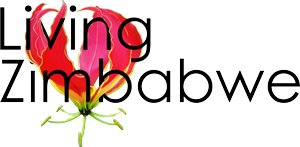Back in the infamous Zim dollar days, everyone wanted to put their property into company names. This way, the buyers avoided transfer fees and the sellers avoided paying capital gains tax. There were other reasons too, but these are probably too shady for a reputable agent such as myself to know about…
It now seems that there are more disadvantages to owning a property in a company name than the financial advantages of transfer fee avoidance for your future, potential buyers. I have listed some of the points below, but by no means is the list comprehensive:
1. The myth of not having to pay capital gains tax on the sale of a property owned by a company needs to be debunked as soon as possible. The sale of shares of any description is liable for a 20% capital gains tax. You may be able to find a clever account to perform some creative accounting to avoid the tax, but somewhere down the line these loop holes will be closed and you will be liable for the tax.
2. If you are over 55 years old and the property you are selling is your principal primary residence (your home, in layman’s terms!), then you may apply to ZIMRA for Capital Gains Tax exemption. If the property is in your name, then it is much easier to explain to ZIMRA that it is in deed your home and you are eligible for the exemption. If it is in a company name, then there will be all sorts of questions and at the end of the day, you may not get the exemption, as a company can’t have a home, because although a company may be a legal entity: it does not need to sleep somewhere!!!!
3. If the owner of the house was to die, the family would not have to pay death duties on the principal primary residence (yes, the home), but only if the property is in the deceased person’s name. If it is in a company name, the Master of the High Court will demand his pound of flesh, at the most vulnerable time in the grieving family’s life. The last thing you need is trying to find money for the death duties on your home when you have lost a loved one.
4. There is the ever present fear of the 51% indigenisation bill. Personally, I don’t see this reaching as far a shelf companies which own houses, but then I am the eternal optimist and this is Zimbabwe, so anything goes, and generally the more unexpected the more likely the event will occur. (What a conundrum that is!)
5. The last point, which comes to mind is the fact that most banks will not loan you money to buy a house in a company name, and so as a buyer you will still have to pay transfer fees to put the property in your name. This whole process thus defeats the reason for the company name and the proposed transfer fee avoidance. Banks are also reluctant to lend you money against a property in a company name. This is because ownership of the company can be transferred without it affecting the change of ownership on the title deeds.
My advice therefore, is to put your own home in your personal name. If you buy and sell properties as investments then I don’t think it matters which way you choose as you will be selling it on. But remember even if you put it in a company name, you will probably still have to pay tax on the shares. The very best way to avoid this is by putting the property into a trust…I’ll explain this in the next blog!
For more advice contact me at nicky@pageproperties.co.zw
This has been a submission by Nicky Versfeld. If you have something to share, you too can become a Citizen Journalist by submitting your story here: Citizen Journalism by Living Zimbabwe.

No comments yet.